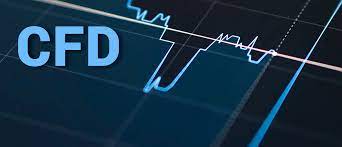Forex brokers have lots of opportunities to make money. One of them is a contract for differences (CFD), which allows you to trade on various financial instruments (such as shares, ETFs, metals, or cryptocurrencies). If you decided to give CFD a try, you should start with trading company shares, exchange-traded funds, metals, energies, or commodities.
However, stock CFDs are out of competition. This is because stock prices can grow by tens of percent in the short term.
First of all, let’s find out what CFD means. CFD is a contract for difference, which allows you to profit from price movement without owning the underlying assets (usually stocks). It is clear that CFD trading is not very different from common investing. However, it has its nuances:
- an investor can speculate on the price movement without owning the asset;
- buying CFDs doesn’t allow you to earn interest;
- CFD is a contract between two parties (i.e. a broker and a speculator).
As a result, the investor can interact with stocks in a very simple manner. In addition, CFD provides acceptable trading conditions:
- you can start trading with a minimum deposit and high leverage;
- there are no limitations on the short positions;
- positions can be opened and closed very quickly;
- you don’t even need a PC to start working; trading is carried out on a special platform that can be accessed from mobile phones (i.e. you can use the mobile version of the program);
- you don’t need special experience to start speculating (which is an advantage for investors).
Key characteristics of CFD trading
If you hold positions overnight, you’ll have to pay a swap fee. The Forex market operates 24/7 based on the selected trading session; therefore, stock prices may change. Many brokers charge fees for buying CFDs.
The interest depends on the dealing center, as well as the chosen stock. Therefore, you should discuss such details with a broker in advance. Remember that if you buy stock CFDs, you will not get any interest in investments. Stocks are not considered the traders property, as their owners don’t have the right to attend the shareholders’ meeting.
Conclusions
CFD is considered a great investment tool, as it allows the investor to profit from the price changes in the stocks of the world’s largest companies. The main feature of CFD trading is that the investor doesn’t own stocks. Working with CFDs is so easy that even beginners can figure it out. Moreover, you don’t need a large initial deposit to start trading (compared to the minimum initial exchange deposit).
If you haven’t worked with CFDs before, you should take this opportunity. Exchange-traded contracts offer a wide variety of financial instruments to trade; in addition, there are certain trading patterns for CFDs. Using CFD tools, you can build a perfect trading portfolio. It is obvious that CFD doesn’t have any significant weaknesses. However, it has minor drawbacks related to the specifics of the Forex market, as well as the high risks of margin trading.
CFD contracts are often used for hedging. For example, let’s say that a trader who invested in the company’s securities sees that the asset prices may fall in the near future. In this case, he/she can take precautions and minimize possible losses using CFDs.
In other words, when choosing CFD vs invest, remember that an investor can make money from a short-term downtrend by buying (selling) an equivalent value of the issuer’s securities.


